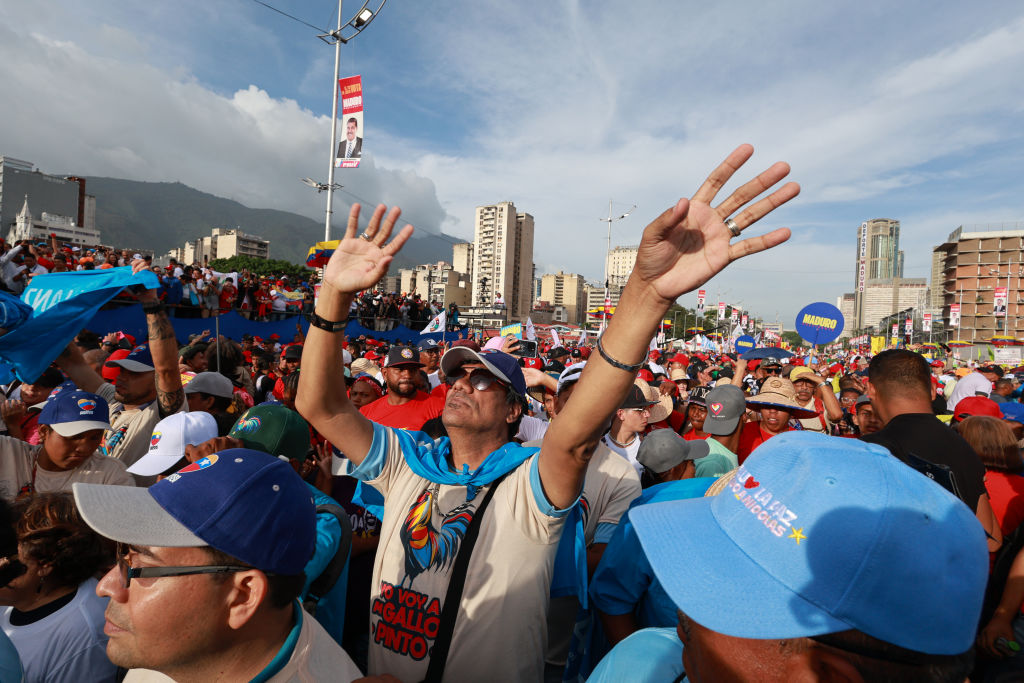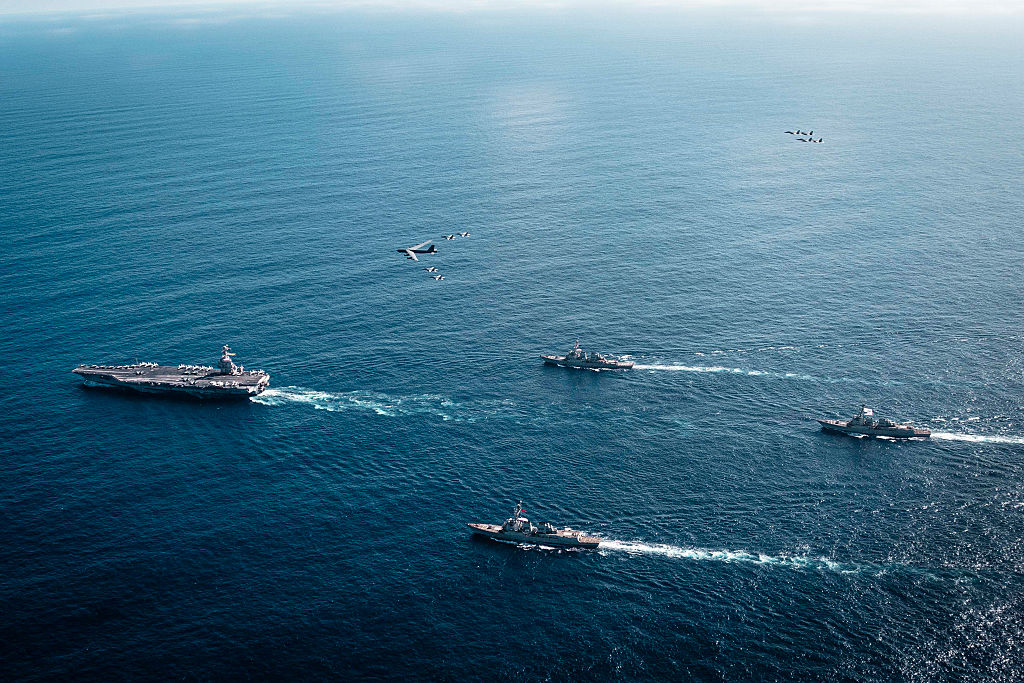Venezuelans will gear up to vote in what has devolved into an unfair and unfree presidential election Sunday — one that nonetheless offers its citzens the best chance in a decade to get rid of the twenty-five-year-old Chavista regime that brought the oil-rich nation to its knees.
Nicolás Maduro, the man who, among other things, caused a forty-two-place drop in Venezuela’s Press Freedom Index in ten years, will be facing Edmundo González. González, a little known diplomat who served in Algeria and Argentina, became the opposition’s unitary candidate after the government banned María Corina Machado from running. Though “inabilitated,” as Venezuelans put it, this election continues to be a Maduro versus Machado match.
Were the election to lead to Maduro’s exit, the biggest political and economic crisis in the Western Hemisphere — which caused the departure of close to 8 million citizens — would be at the beginning of its end. If not, expect the same story to continue, including the expanding — and Maduro-weaponized — migration crisis, which is affecting countries from Chile to the United States.
Three of the best trusted pollsters in Venezuela show González leading by around twenty to thirty percentage points. If democracy was a reality, the results would surprise no one. The question is: to what extent is Maduro prepared to cheat?
Over the last year, the Venezuelan autocrat has imprisoned half of Machado’s inner circle, used his security forces to harass opposition leaders, tinkered with the voter rolls and disenfranchised millions of its citizens residing outside of the country. On Friday, a flight carrying several former national leaders who were on their way to Venezuela to participate as electoral observers was prevented from taking off from Panama.
“Copa [Airlines] plane carrying [former Panamanian] president [Mireya] Moscoso and other former presidents heading to Venezuela has not been allowed to take off from [Panama’s] Tocumen while they remain on board, due to the blockade of Venezuelan airspace,” said José Raúl Mulino, the Panamanian president. Later that day, nine Spanish deputies were retained and then deported after landing in the Venezuelan port city of La Guaira.
So who’ll be observing? Democracy-loving Chinese officials, the do-nothing UN and a barebones Carter Center mission that will not even check how the votes are counted.
Though Venezuelans still have some hope left, the odds benefit Maduro. He controls the institutions, has survived international sanctions and has ample experience in quashing popular discontent. Yet it would also be foolish to completely rule out a potential transition. For the first time in decades, the opposition is firmly united behind a savvy popular leader with a clear objective. Chavismo, meanwhile, seems mired in divisions.
Maria Corina Machado, one of the most outspoken opponents of chavismo, won the opposition primaries by a 93 percent landslide in October. She toured the country and turned the Venezuelan people from a disillusioned mass into an energized and well-oiled political movement.
Machado’s charisma has been well documented, but her political prowess is also worth noting. She effectively united a fractious opposition, and when Maduro banned her from running, she outmaneuvered the regime into accepting González’s nomination.
For years, Chavismo has kept power thanks to limitless oil money and a stubborn base of supporters. Today, they have neither: Venezuela’s economic collapse eroded their support and sanctions made it harder for them to keep their cronies happy. The swift and ruthless purge of key power players earlier this year showed there’s simply not enough money to keep all leaders happy.
The 2024 election offered Maduro’s best bet to solve the problem. His regime wagered it could “win” an election against an atomized opposition and a disillusioned citizenry, allowing countries to remove sanctions and let the flood of money solve all the internal disagreements within the regime. Yet that clearly hasn’t happened.
One wing of Chavismo seems to be willing to do anything to stay in power, as they have little prospects in a post-Maduro Venezuela. Another wing seems committed to keep power, but are more open to negotiate a settlement if that includes some guarantees and impunity for them. The election is putting this coalition to the ultimate test.
So, what can observers expect? The opposition will get more votes, that we know. What we don’t know is how Maduro, the electoral council and the military react to the electoral defeat.
Here are some scenarios:
- Chavismo accepts defeat and negotiates a transition: Maduro does not have enough internal support for a clear fraud, nor a massive repression campaign, and decides his best chance to get a deal is to accept defeat and negotiate a transition before the presidential term begins in 2025
- Chavismo does not accept defeat and holds onto power: Maduro and his allies go for a full electoral fraud, and use their diminished but brutal repressive structure to quash any protests in the streets. Chavismo becomes more — yet not completely — isolated, but stays in power
- Chavismo tries to hold to power but fails: Maduro and his cronies announce they win the election, but they are not strong enough to quash protests and chavismo implodes chaotically
If Chavismo and the military circle the wagons around Maduro, expect to see repression. If Machado and the international community somehow break the Chavista coalition and negotiate a transition, Venezuela could potentially close a perilous chapter of its history. With the many variables at play, what we know for certain is that Maduro is willing to do a lot to retain power and that Machado is no pushover. Things are about to get interesting, if not ugly.


























Leave a Reply